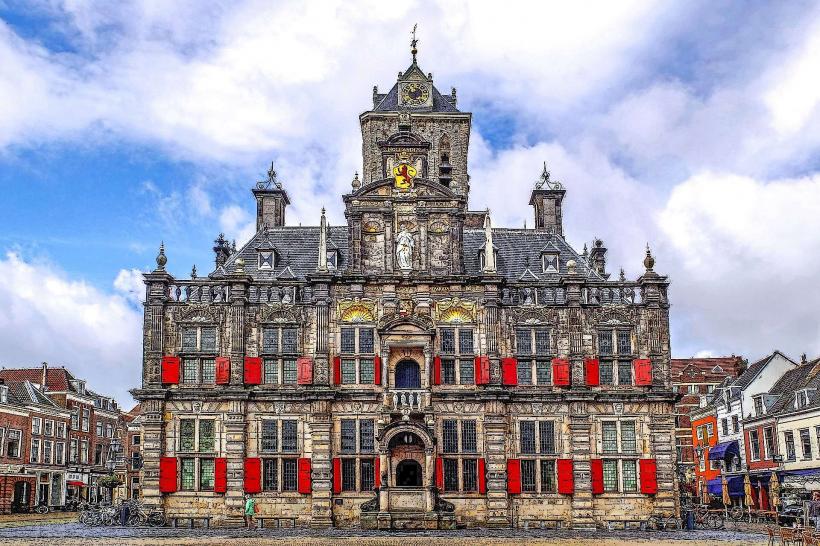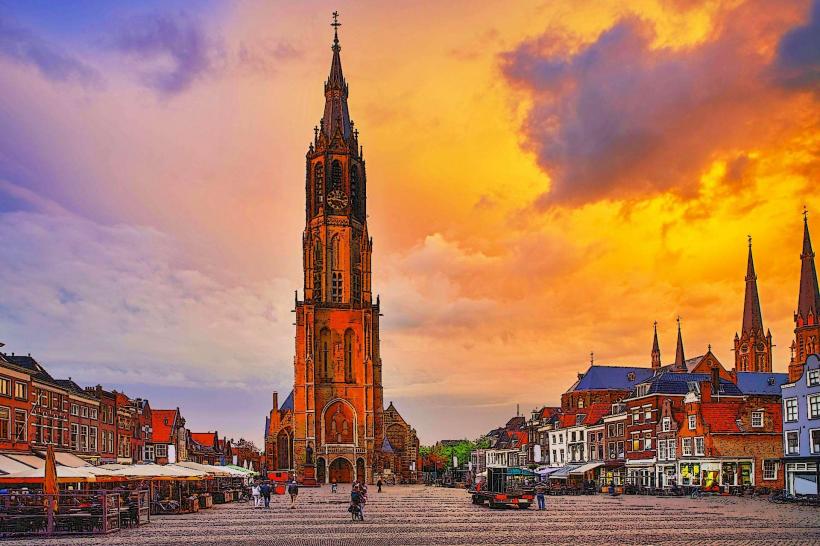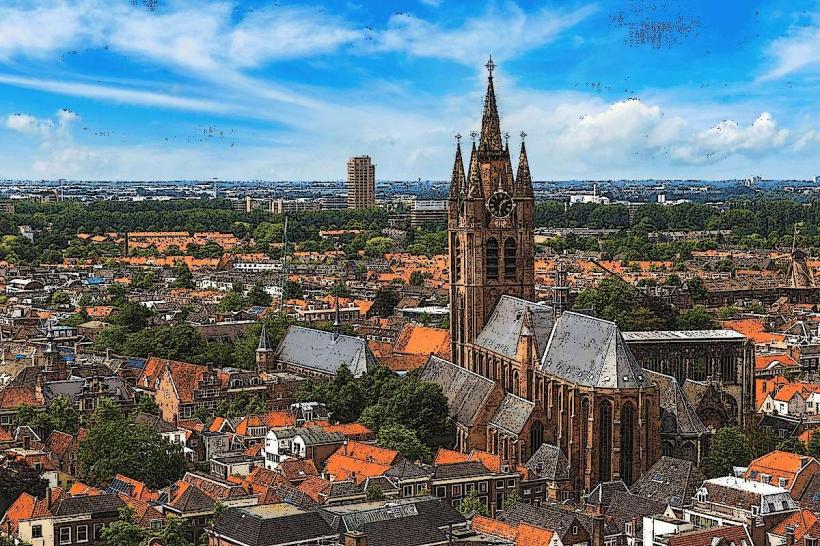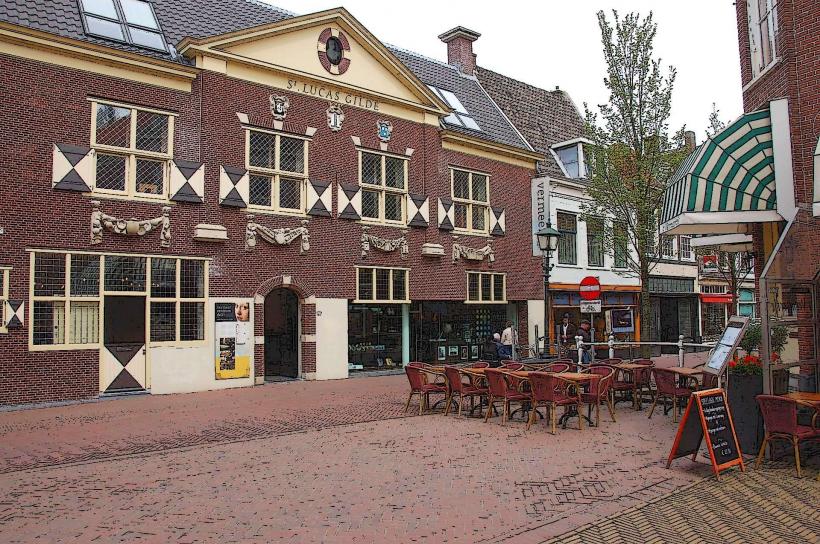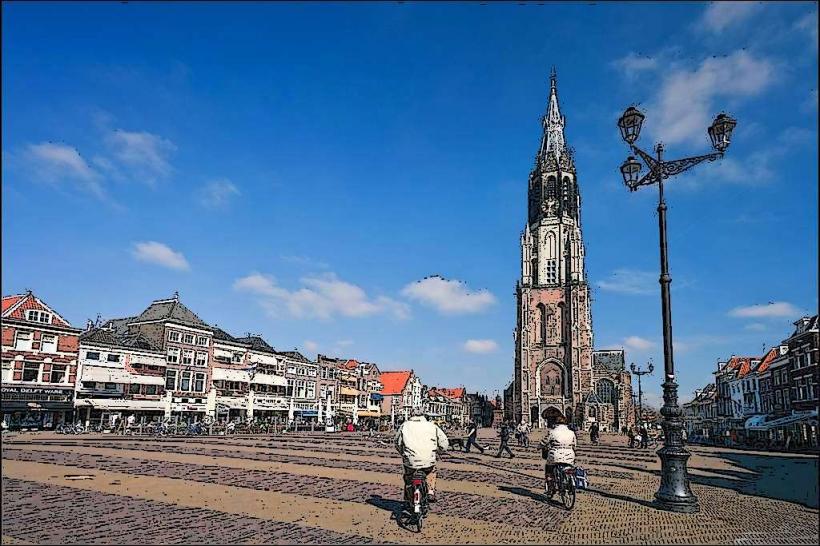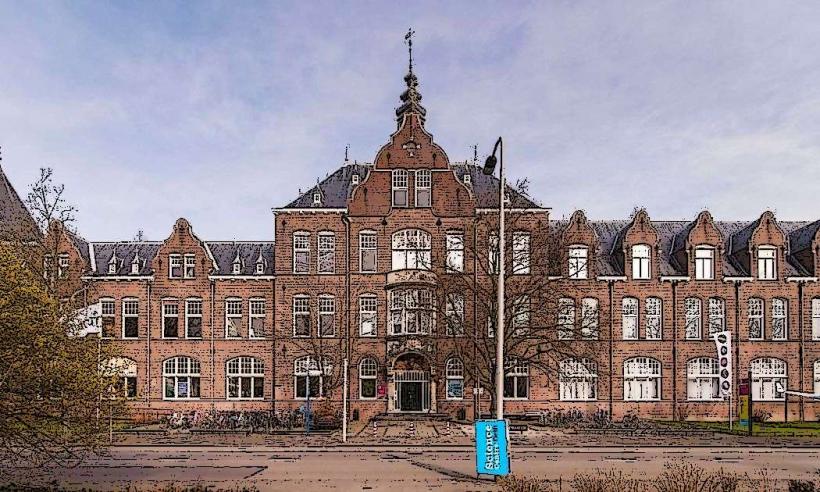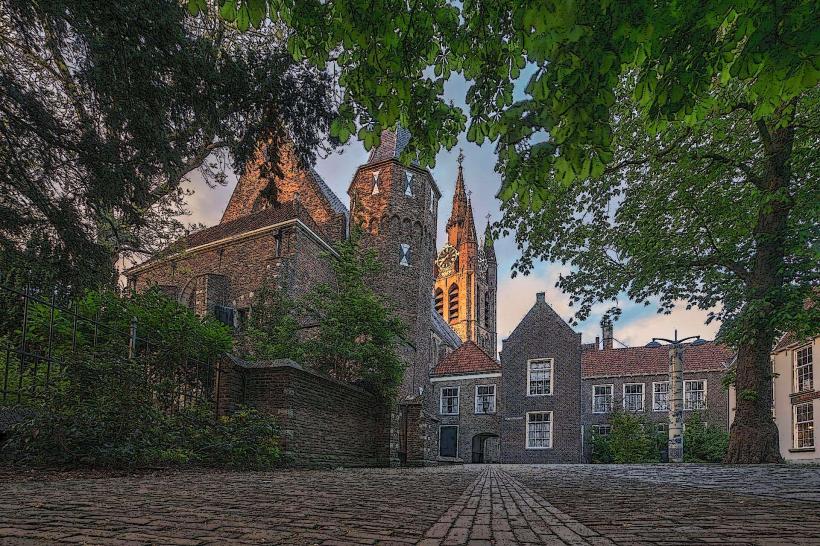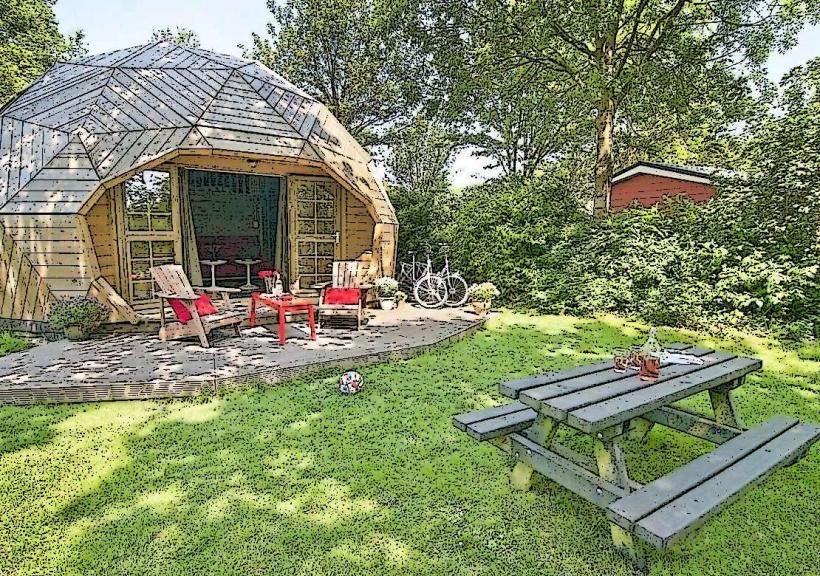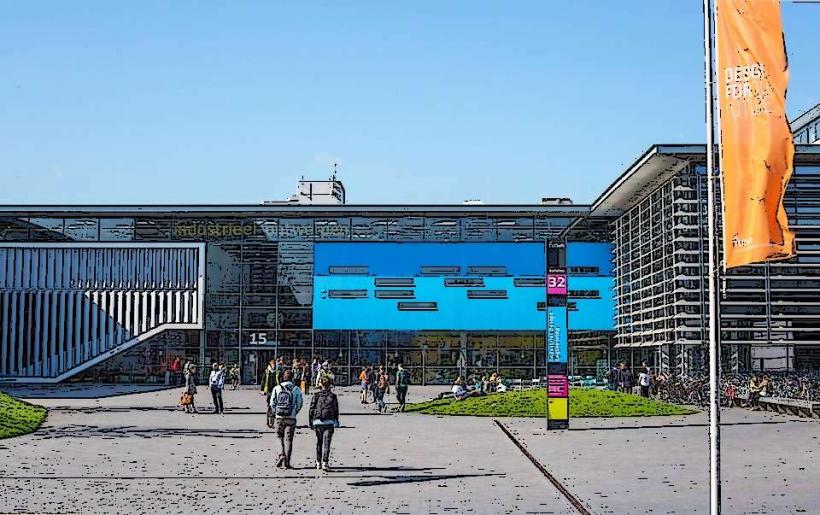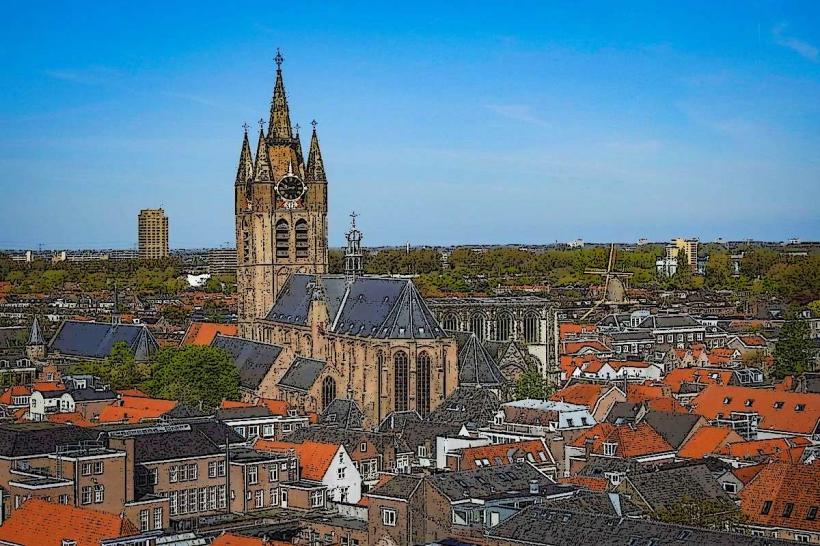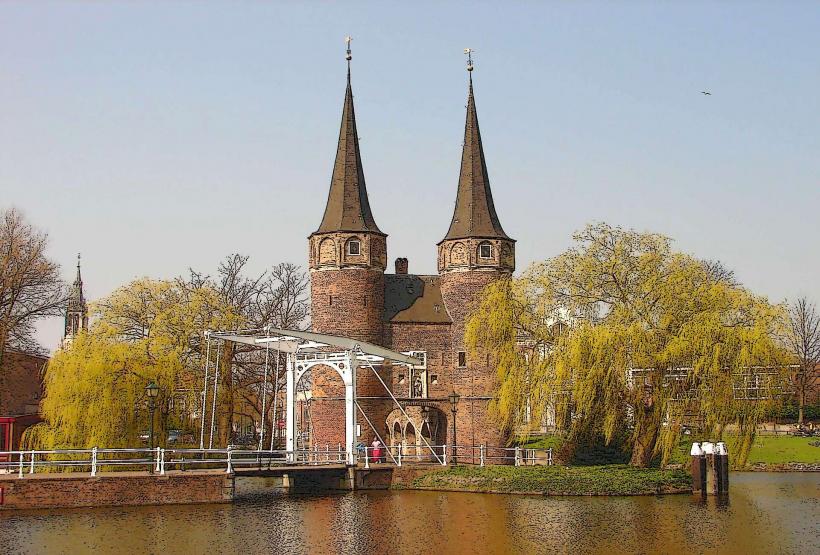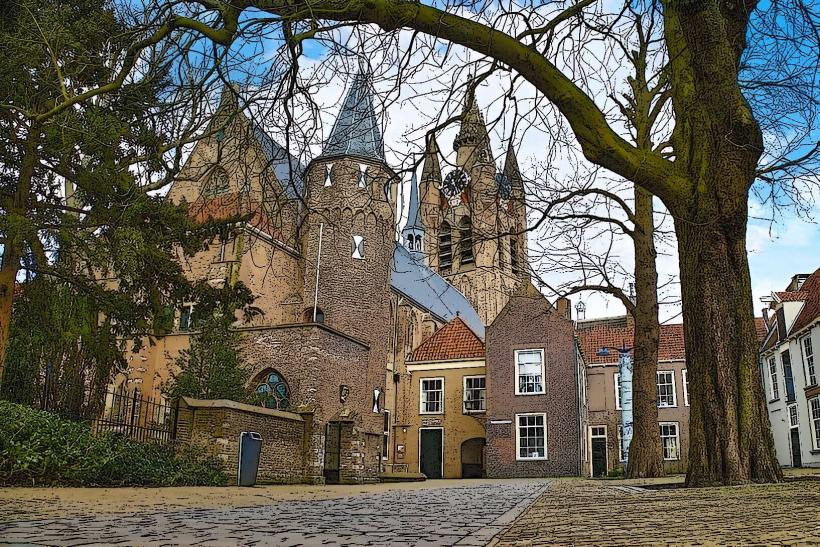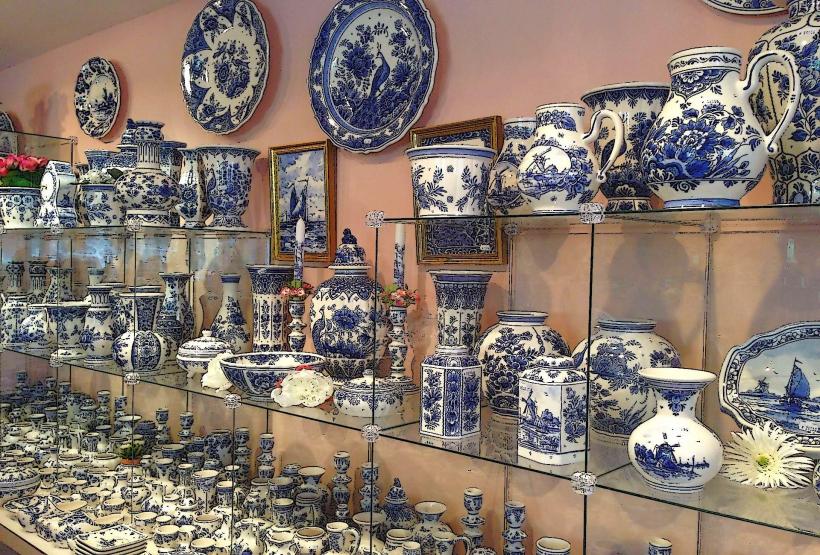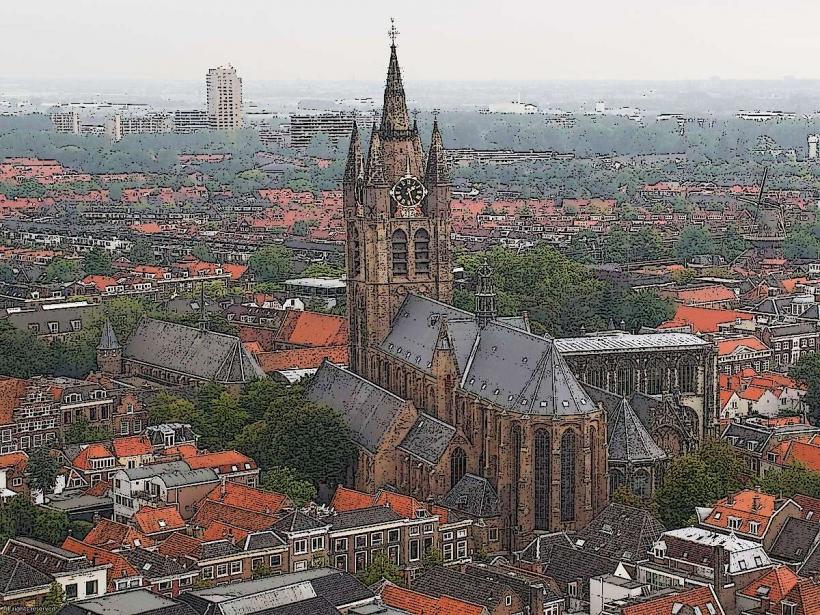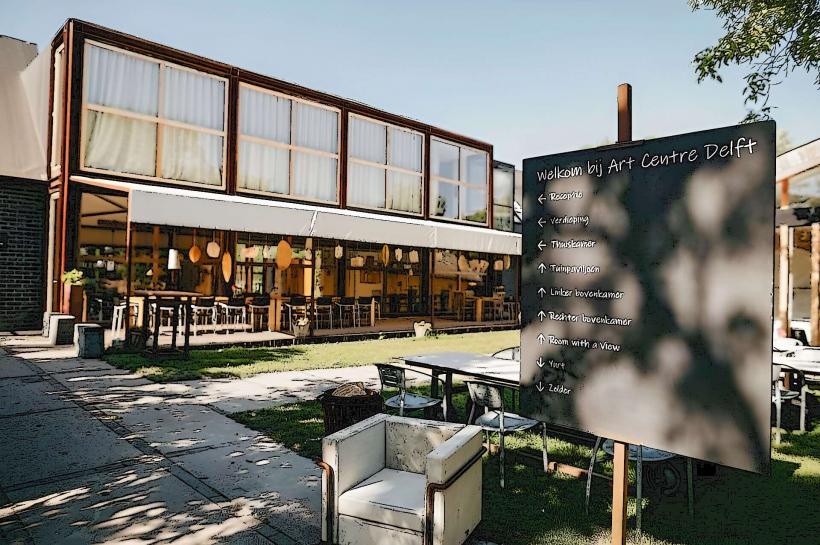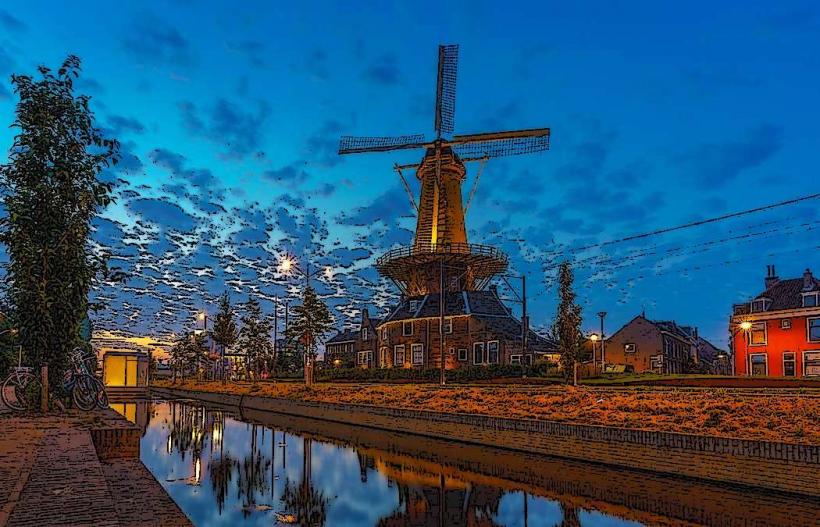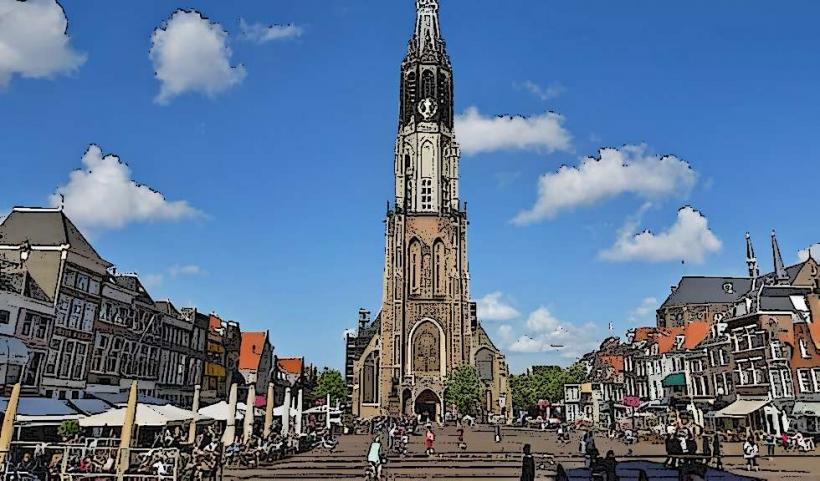Information
City: DelftCountry: Netherlands
Continent: Europe
Delft is a charming and historic city located in the province of South Holland in the Netherlands, situated between Rotterdam and The Hague. Known for its iconic blue and white porcelain, picturesque canals, and rich history, particularly during the Dutch Golden Age, Delft is a beautiful blend of tradition and modernity. The city has a well-preserved medieval center and is famous for its association with notable figures such as Johannes Vermeer, the renowned Dutch painter, and Antonie van Leeuwenhoek, a pioneering microbiologist.
Here’s a detailed overview of Delft, excluding specific landmarks:
1. Historical Significance
Delft has a rich history that stretches back to the Middle Ages. The city was granted city rights in 1246, and its position along the Schie River made it an important center of trade, particularly in the 16th and 17th centuries. During the Dutch Golden Age, Delft became one of the wealthiest cities in the Netherlands, thanks in part to its thriving textile industry and its position as a hub for artistic, cultural, and intellectual endeavors.
The city played a major role in the development of Dutch culture and politics, particularly in the 17th century. It was a center for scientific research, the arts, and the production of ceramics. Delft’s rich history is still visible in its cobblestone streets, canals, and many historic buildings.
2. Association with Johannes Vermeer
Delft is most famously known for being the hometown of Johannes Vermeer, one of the greatest Dutch painters of the 17th century. Vermeer’s work, which includes masterpieces like "Girl with a Pearl Earring" and "The Milkmaid", has contributed significantly to the city’s cultural reputation.
While Vermeer’s exact birth and death dates are unclear, it is widely accepted that he spent most of his life in Delft. The city embraces its connection to Vermeer, with several art museums and galleries featuring his work and exhibitions dedicated to his life and legacy. Delft’s streets and architecture are often reflected in the serene domestic scenes depicted in Vermeer’s paintings.
3. Delftware (Delft Pottery)
One of the most iconic elements of Delft’s cultural heritage is its Delftware or Delft pottery, a distinctive type of blue and white ceramic. The pottery dates back to the 16th century when Dutch artisans began producing their own version of Chinese porcelain. Delftware quickly became a popular export and was prized for its beauty and craftsmanship.
Delft still has active pottery factories, and visitors can explore the world of Delftware, with many shops and museums selling traditional ceramics. The blue-and-white pottery often depicts scenes from Dutch history, landscapes, and traditional motifs. Some of the most famous producers of Delftware, such as Royal Delft (Koninklijke Porceleyne Fles), continue to create high-quality pieces that attract collectors from around the world.
4. Architecture and Cityscape
The city of Delft is known for its well-preserved medieval center, featuring narrow streets, charming canals, and historic buildings that showcase the city’s long history. The city center is full of beautiful buildings, from Renaissance-era mansions to Gothic churches. Delft’s canals are lined with traditional Dutch townhouses, and the city is often referred to as one of the most picturesque in the Netherlands.
The Old Town (Oude Stad) is home to a wealth of traditional architecture, with many buildings dating back to the 16th and 17th centuries. The Markt Square is the center of the city and is surrounded by beautiful guild houses, cafes, and shops. The striking Nieuwe Kerk (New Church) and the Oude Kerk (Old Church) are two important landmarks that dominate the city’s skyline and add to its historical character.
5. University and Innovation
Delft is home to the Delft University of Technology (TU Delft), one of the world’s leading technical universities. The university, founded in 1842, is known for its cutting-edge research and education in the fields of engineering, technology, and architecture. The university has contributed greatly to the city's development, particularly in the areas of engineering and design.
The presence of TU Delft has also fostered a culture of innovation and sustainability in the city, with the university being at the forefront of research in fields such as renewable energy, robotics, and urban planning. The university’s influence is evident in the modern architectural structures scattered around the city, adding a contemporary touch to Delft’s otherwise historic atmosphere.
6. Green Spaces and Canals
Delft offers a tranquil environment, with a variety of green spaces, parks, and canals throughout the city. The Delftse Hout is a large park on the outskirts of the city, offering walking and cycling paths, a lake for boating, and areas for picnicking and relaxation. The park is a popular destination for locals looking to escape the hustle and bustle of the city center.
The city’s canals also contribute to its peaceful ambiance. Visitors can take boat tours along the canals to explore the city’s charm from the water. The canals provide a picturesque setting for the many cafes and restaurants lining their banks, where visitors can enjoy a meal or a drink while watching the boats go by.
7. Culinary Scene
Delft has a diverse and growing culinary scene, with a range of cafes, restaurants, and eateries offering everything from traditional Dutch dishes to international cuisine. The city has a number of cafes where visitors can enjoy classic Dutch treats such as stroopwafels, poffertjes, and haring (raw herring), as well as a variety of pastries and coffee.
Delft is also known for its fresh local produce and seasonal ingredients. The Markt Square is a hub for local markets, including a regular farmers’ market that offers fresh fruits, vegetables, cheeses, and baked goods. The city’s restaurants offer both traditional Dutch fare and a wide selection of international dishes, from Italian to Asian fusion, reflecting the multicultural influences of the student population and visitors.
8. Festivals and Events
Delft hosts a number of cultural events and festivals throughout the year, celebrating everything from the arts to local traditions. Some of the key events include:
- Delft Chamber Music Festival: A popular music festival featuring performances by talented classical musicians from around the world.
- Delft Blue Festival: A celebration of Delftware and the city’s connection to the famous blue and white pottery, with markets, exhibitions, and pottery workshops.
- King’s Day (Koningsdag): Celebrated on April 27th, King’s Day is a nationwide celebration of the Dutch monarchy. In Delft, the city comes alive with street markets, performances, and orange-themed festivities.
- Sinterklaas: A traditional Dutch celebration of St. Nicholas, marked by parades and special events in December, is particularly popular with families and children.
These festivals help create a vibrant atmosphere in the city, and many are organized in the charming streets and squares, adding to Delft’s festive and welcoming ambiance.
9. Public Transport and Accessibility
Delft is well-connected to other major cities in the Netherlands, particularly Rotterdam and The Hague. The city’s central train station, Delft Railway Station, offers regular train services to cities such as Amsterdam, Rotterdam, and The Hague, making it easy for visitors to travel to and from Delft.
The city is also very bike-friendly, and cycling is one of the most popular ways to get around. Public buses are available for local transport, and many of the city’s attractions are within walking or cycling distance of one another.
Delft is compact and easy to navigate, and its well-developed public transport system and cycling infrastructure make it an ideal destination for exploring at a relaxed pace.
10. Sustainability and Innovation
In recent years, Delft has become known for its focus on sustainability and innovative urban design. The city embraces green technologies and sustainable development, especially in the areas of energy efficiency, green building, and environmental management. The presence of the Delft University of Technology has made the city a hub for research into sustainability and eco-friendly solutions.
The city is actively working to become more energy-efficient, with numerous initiatives aimed at reducing its carbon footprint and promoting green living. This commitment to sustainability is reflected in the city’s modern buildings, green spaces, and the active promotion of cycling and public transport.
Conclusion
Delft is a city where history and innovation come together in a harmonious blend of tradition and modernity. With its historic streets, canals, and iconic Delftware, alongside its cutting-edge university and cultural festivals, the city offers visitors a rich and varied experience. Whether you're exploring the legacy of Johannes Vermeer, enjoying a canal-side café, or learning about the latest advancements in technology and sustainability, Delft is a place where the past and future coexist beautifully.

